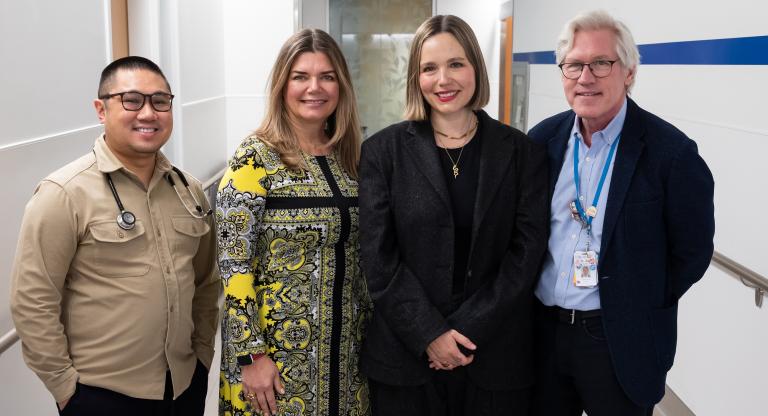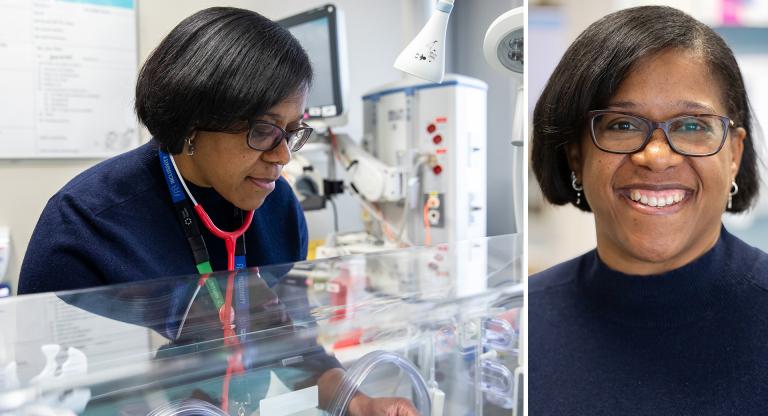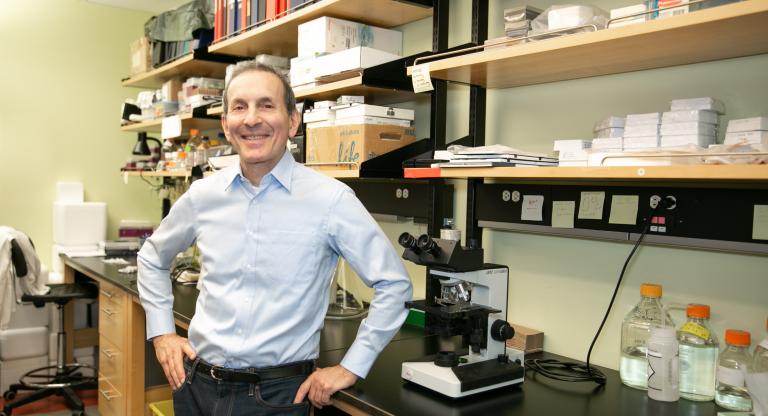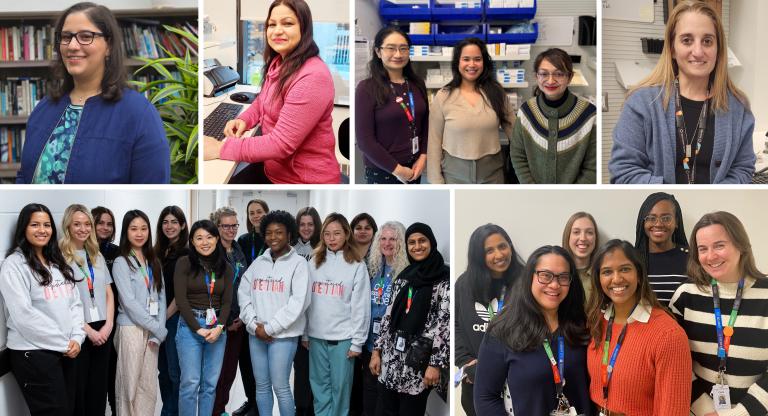Ontario Fetal Centre's robotics research paves way for fetal surgery innovation
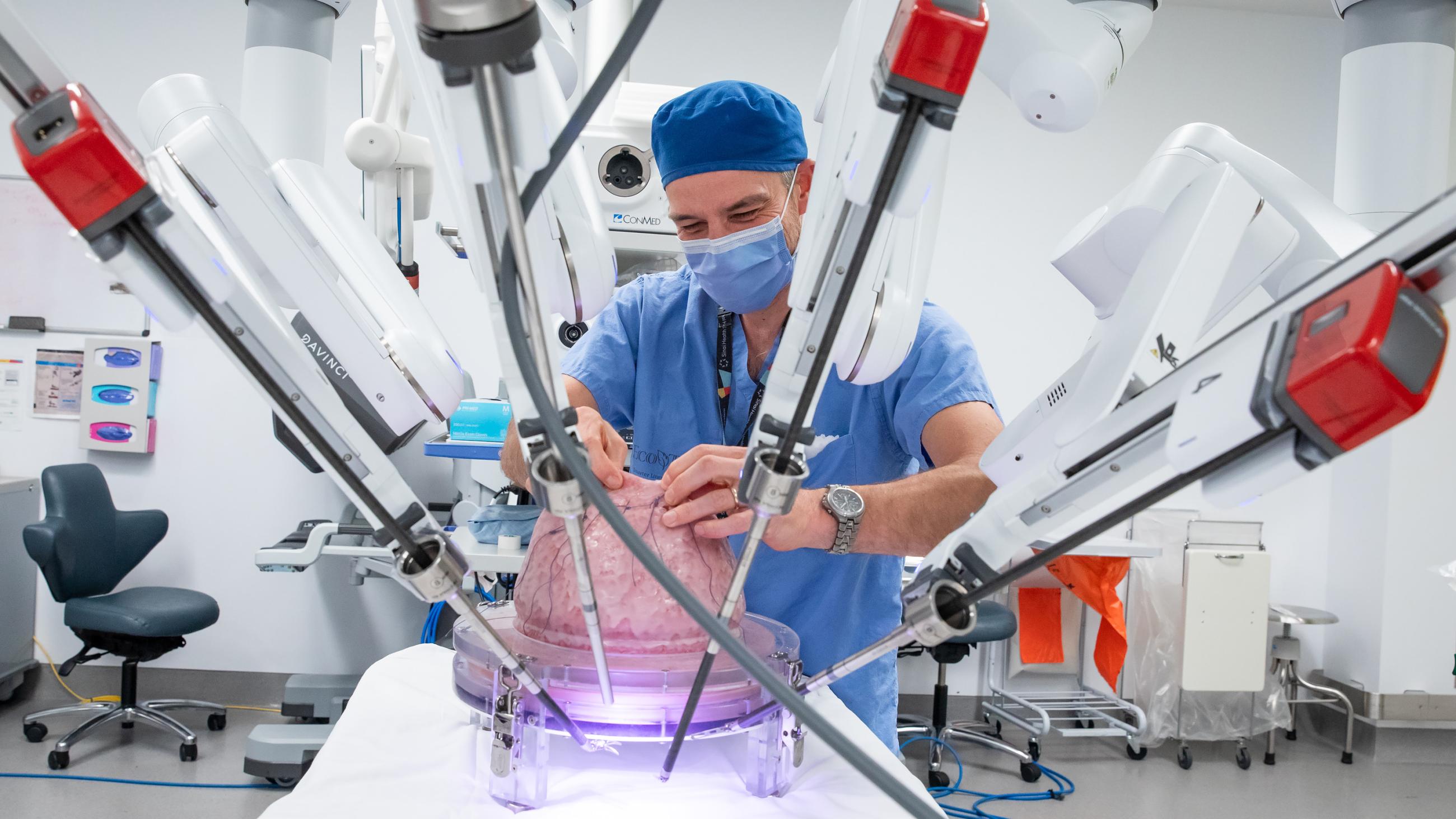
A team at the Ontario Fetal Centre, led by Dr. Tim Van Mieghem, is trialing the da Vinci Xi robot to repair spina bifida.
Since its debut at Mount Sinai Hospital, the state-of-the-art da Vinci Xi robot has revolutionized the way surgeries are performed, enabling teams to perform more complex laparoscopic operations on patients with complicated health concerns.
Building on this success, a team led by Dr. Tim Van Mieghem, maternal fetal medicine specialist at Mount Sinai Hospital, is trialing the robot to perform fetal surgery, aimed at decreasing the adverse effects of spina bifida.
Each year in Canada, spina bifida affects approximately 120 to 150 fetuses. Spina bifida is a structural defect of a baby’s central nervous system that appears when the spinal column fails to close in early fetal development, which can lead to varying degrees of disability.
There are currently two methods of repairing spina bifida: open fetal surgery or fetoscopic (keyhole) surgery.
With open fetal surgery, the large incision made in the uterus can carry long term problems, including an increased incidence of preterm birth, and uterine scarring, which necessitates cesarean delivery in subsequent pregnancies.
Although fetoscopic repair is effective in improving patient outcomes, technical challenges have been a driving force for Dr. Van Mieghem and his team at the OFC to explore other interventions.
“Traditional laparoscopic instruments are rigid, and cannot easily replicate the delicate movements that you normally can make with your hands,” says Dr. Van Mieghem.
Enter the four-armed wonder, the da Vinci Xi.
This pioneering technology is currently not offered for spina bifida repair in any other clinical setting around the world; the research, which is funded by a grant from the Canada Foundation for Innovation, could transform the way this fetal surgery is performed not only at Mount Sinai Hospital, but globally.
Robots not only enhance surgical precision and control, but also require a smaller incision, which can lead to reduced patient recovery times and decreased pain post-operatively.
The first phase of research involved training on a virtual simulation model to learn the controls of the robot, and to practice surgical techniques, such as suturing.
The second phase involved the development of a model to simulate the procedure. Support was enlisted from a diverse panel of experts, including engineers for mathematical modelling, and Francis Lebouthillier, Associate Professor at OCAD University, who designed a silicone uterus and a fetus with spina bifida.
The surgeon operates the robot from a stable and controlled environment, sitting in an ergonomic position inside of the console. The two controllers that steer the robot are linked to instruments which are carefully inserted into the uterus with small ports.
“On the silicone model we are doing the same hand movements as we would on an actual patient. The wristed instruments on the robot can seamlessly replicate the movement that your hands make, so you have the full dexterity of open surgery combined with the benefits of a keyhole surgery.”
While the robot has not yet been put into practice in real case scenarios, the success of these early trials sets a promising precedent for future implementation of this groundbreaking innovation to fetal surgery, on Mount Sinai patients; the extensive research has enabled the team to learn the functionality of the da Vinci Xi, evaluate the most optimal approach to the procedure, and to course correct.
To bring the robot into clinical practice at Mount Sinai, extensive training with the broader team is required – which the team is looking to do in the near future.
“We need to ensure that everyone who is involved in the surgery is comfortable practicing on the model – not just the surgeons,” explains Dr. Van Mieghem.
Through ongoing research the Ontario Fetal Centre continues to push the boundaries of innovation to improve patient outcomes.
Since 2017, the OFC has performed over sixty open fetal surgeries to repair spina bifida. The Ontario Fetal Centre (OFC), based at Mount Sinai Hospital and a partnership with The Hospital for Sick Children, is currently the only centre of its kind in Canada to perform this procedure.









